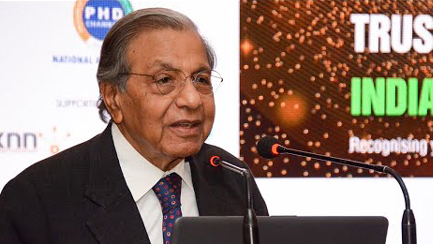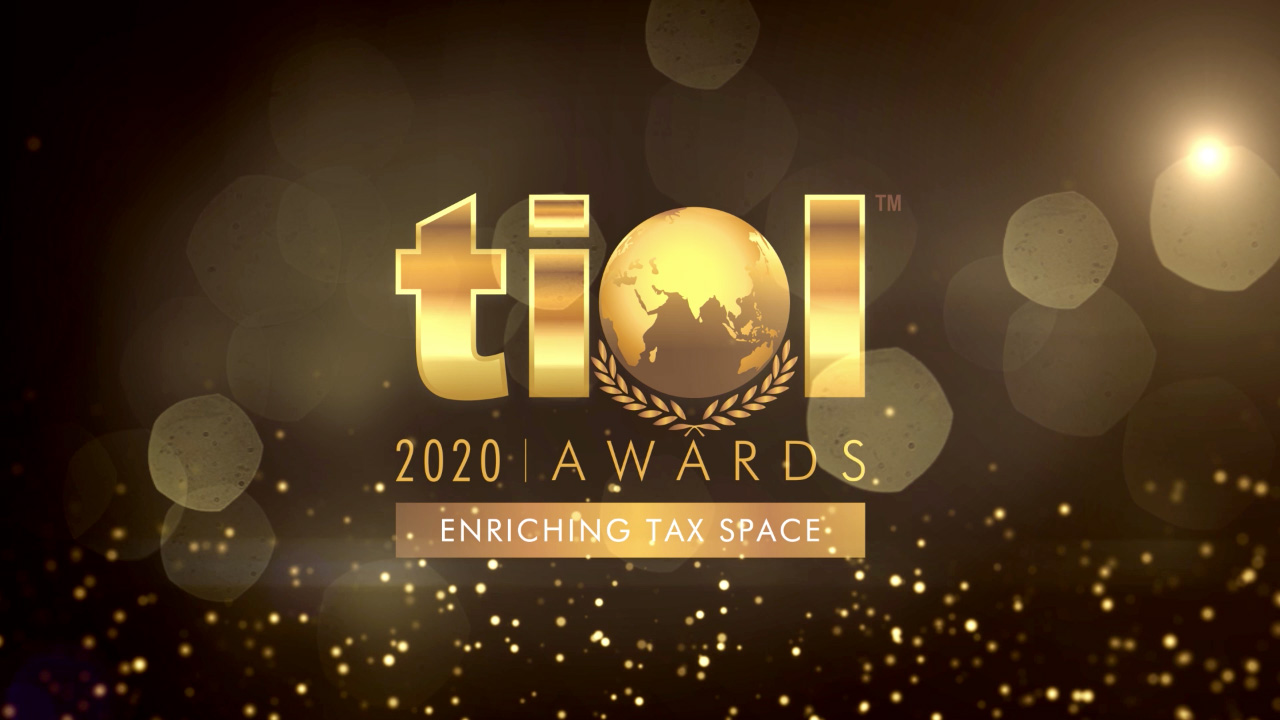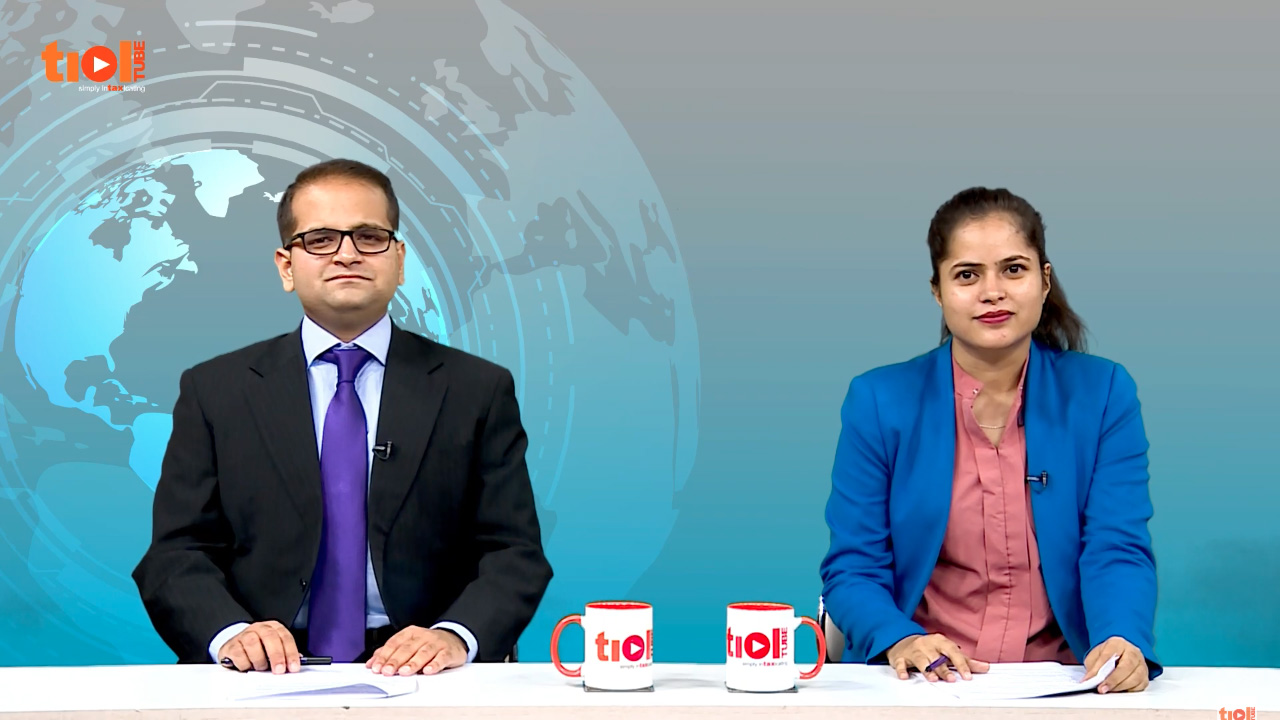SERVICE TAX
2019-TIOL-3449-CESTAT-DEL
Choudhary Stone Crushing Company Vs CCE & ST
ST - The assessee was engaged in providing various types of construction services - Revenue was of the view that the activities undertaken would be liable for service tax under categories of Commercial or Industrial Construction Services (CICS) and Repair and Maintenance Services - The activity of construction of foundation roads are in the nature for Composite Service in which the assessee was required to supply the materials to be used in construction activity - Such composite service is to be classified only under the Work Contract Service introduced w.e.f. 1/06/2007, in view of the decision of Supreme Court in case of Larsen and Turbo - 2015-TIOL-187-SC-ST - By following the decision of Apex Court, the demand for service tax for the period upto 31/05/2007 is set aside - For period commencing on 1/06/2007, the composite services would be liable for classification under Works Contract Service only - But the SCN has proposed the demand for service tax under the category of Commercial and Industrial Construction Service as well as Repair and Maintenance Service - Hence the confirmation of demand under category of WCS will not be proper particularly in view of the decision of the Tribunal in case of Ashish Ramesh Dasarwar - 2017-TIOL-3230-CESTAT-MUM wherein Tribunal has taken the view that demand for Service Tax is to be set aside if the SCN proposed a classification different from WCS for construction activity - Consequently, the demand for service tax made under the (CICS) category for Construction of foundation/ roads as well as repair of roads is set aside - To take a final view in respect of liability of service tax for the activity of laying of pipelines, the relevant contracts executed are required to be verified - For such purpose, the matter is remanded to the Adjudicating Authority to take a de Novo decision only on this activity - He is directed to peruse the relevant contracts and take a de novo decision regarding the nature of activity and its classification - He will also keep in view the decisions of Supreme Court in case of Larsen and Turbo as well as Bhayana Builders - 2018-TIOL-66-SC-ST before taking a final view in this matter: CESTAT
- Matter remanded: DELHI CESTAT
2019-TIOL-3448-CESTAT-DEL
Commandant Home Guard Training Centre Vs CCE & ST
ST - The appellant Commandant, Home Guard Training, Government of Rajasthan, have got no status as an assessee - The Commandant is an employee of assessee, Government of Rajasthan and is entrusted with duties and functions under the provisions of The Rajasthan Home Guards Act, 1962 - SCN was issued to appellant alleging that they are providing 'security agency services' - Further, the SCN alleged that the assessee has evaded service tax allegedly leviable on amount received by appellants during the period from 09.10.2007 to 30.06.2012 - Appellant have recovered cost/ fee for deploying additional police personnel, on request - Even if such security by State is provided on cost recovery basis, the same does not become taxable service as defined in provision of service tax, the same being sovereign function, under the scope of service tax - The appellant relies on the ruling of Tribunal in Dy. Commissioner of Police, Jodhpur 2016-TIOL-3507-CESTAT-DEL - He further states that the order of this Tribunal have been affirmed by Supreme Court in . Dy. Commissioner of Police, Jodhpur - Accordingly, appellant prays for allowing the appeal and setting aside the O-I-O being a nullity - The SCN is bad for non joinder of necessary party - The State of Rajasthan - Thus, the O-I-O is ab initio void and the same is declared a nullity - Accordingly, the impugned order is set aside: CESTAT
- Appeal allowed: DELHI CESTAT
CENTRAL EXCISE
2019-TIOL-3447-CESTAT-MUM
Malmo Steels Pvt Ltd Vs CCE
CX - Assessee challenges the recovery pertaining to clearance of goods effected by them to 'developers' of 'special economic zones' determined in impugned order in the light of exemption afforded by section 26 of SEZ Act, 2005 - According to jurisdictional central excise authorities, the eligibility of assessee for availment of CENVAT credit attributable to inputs/input services procured for use in such supplies is contingent upon discharge of liability under rule 6(3) of CCR, 2004 because such clearances, exempt, as they are, from duty, are not among the inclusions enumerated in rule 6(6) of CCR, 2004 - It is abundantly clear that rule 6 of CCR, 2004 prescribes certain procedures to ensure that duties/taxes on inputs/input services, used in common for manufacture of excisable goods and exempt goods, are availed only in conformity with the principle espoused in rule 3 of said Rules - It is common ground that clearances to 'units' established in such 'special economic zones', being at par with exports, were excluded, through rule 6(6) from denomination as exempt goods and that clearances to 'developers' of 'special economic zones' are also similarly situated from 31st December 2008 - It is on this narrow ground that the liability has been fastened on clearances of assessee - Notwithstanding the belated inclusion of supplies to 'developers' in rule 6(6), these clearances are indirectly included therein under the general category of export goods - The functioning and privileges of 'special economic zones' are governed by SEZ Act, 2005 which, has defined 'exports' in section 2(m) therein to include clearances by units in the domestic tariff area to 'developers' and 'units' - Section 51 of SEZ Act, 2005 provides that, in the event of any inconsistency with any other law, these would prevail - Accordingly, clearances to developers in special economic zone are 'export' and, thereby, within the exclusions prescribed in rule 6(5) - The impugned order is set aside: CESTAT
- Appeal allowed: MUMBAI CESTAT
CUSTOMS
2019-TIOL-516-SC-CUS
Kothari Metals Ltd Vs UoI
Cus - Notification 46/2011-Cus - Duty concessions for import from Philippines and other ASEAN countries in view of ASEAN-India FTA - SCNs sought to deny concessional duty benefit of Customs Notification No. 46/11 dated 1st June, 2011 - ASEAN - India FTA - in respect of import of Tin Ingot imported from Malaysia - High Court took the view that the issues raised in the petition could be appropriately addressed in adjudication proceedings while responding to the show cause notice; that the issue of interpreting the Customs Notification, keeping in view the provisions of Treaty, is an issue which could be raised/urged before the authorities and accordingly had declined to entertain the petitions - Petitioner Kothari Metals has filed an appeal before the Supreme Court.
Held: Appellant(s) had challenged the show cause notice(s) not only on merits but had raised foundational issue of the competence of the concerned authority to proceed in the matter in the context of Article 24 of the Appendix ‘D' to the Treaty dated 30.08.2009 between the Republic of India and the Association of South East Asia Countries (ASEAN) - issue raised by the appellant(s) regarding the efficacy of Article 24 of the Appendix ‘D' to the Treaty cannot be adjudicated by the competent authority - That issue needs to be addressed by the High Court in the Writ Petition(s) filed by the concerned appellant(s) - Order of High Court is set aside and matter is relegated before the High Court by restoring the concerned writ petition(s) to their original number(s), to be decided on their own merits in accordance with law: Supreme Court [para 5, 7, 8]
- Appeals disposed of : SUPREME COURT OF INDIA
2019-TIOL-2729-HC-MUM-CUS
Kothari Metals Ltd Vs UoI
Cus - Petitions under Article 226 of the Constitution of India essentially challenge the show cause cum demand notices issued by the Officers of Customs under Section 28 of the Customs Act, 1962 - The impugned notices in all these petitions seek to deny concessional duty benefit of Customs Notification No. 46/11 dated 1st June, 2011 - ASEAN - India FTA - in respect of import of Tin Ingot imported from Malaysia (ASEAN country) - notice further alleges that the petitioners had not exercised due diligence and proceeded to claim exemption on fraudulently obtained Certificates.
Held: Bench is of the view that the issues raised in the petition could be appropriately addressed in adjudication proceedings while responding to the show cause notice - The issue of application of interpreting the Customs Notification, keeping in view the provisions of Treaty, is an issue which could be raised/urged before the authorities - So also, the certificate issued by the competent authority, cannot be disputed by the Customs Authorities on the basis of decisions of this Court, is also an issue which could be decided by the authority under the Act - Bench is certain that the adjudicating Authority would adjudicate upon the showcause notice without in any manner being influenced by or controlled by the prima facie view taken by the CBIC while communicating with the Malaysian Authorities - There is no reason at this stage to suspect that the adjudicating Authority would not grant a fair and reasonable hearing to the petitioner or not decide the showcause notice fairly taking into account the petitioner's contentions - The various communications of the CBIC which have been referred to by the Petitioner as creating an apprehension in the mind of the petitioner that the adjudication proceedings would be an empty formality, as the CBIC has already taken a view against the petitioner is not justified - The view taken by CBIC is only a prima facie view, in having directed the authority to issue a show cause notice - This only to consider whether the prima facie view is correct or not after getting the response from the petitioner - It is the showcause notice which has been issued to the petitioner and it is the response of the party to the showcause notice which would determine the fate of the showcause notice - Moreover, the prima facie view taken by the CBIC as communicated to the Malaysian Authority or in its communication to the DRI would not govern the adjudication proceedings before the Commissioner - Last but not the least, there are allegations in the notice of the certificate having been obtained by fraud - This issue of fraud is a subject matter of adjudication and cannot be decided in a writ proceedings - For all the aforesaid reasons, Bench declines to entertain these Petitions - Petition dismissed: High Court [para 8, 9]
- Petiton dismissed : BOMBAY HIGH COURT
2019-TIOL-2728-HC-MAD-CUS
KTR Logistics Solutions Pvt Ltd Vs CC
Cus - Revocation of CBLR licence - Main contention of the petitioners in all these cases is that the time prescribed under the Regulations for doing each act is mandatory and, therefore, if no such act is done within the time prescribed, the same cannot be sustained.
Held: Perusal of the CBLR Regulations viz. regulation 19 and 20 would show that at every stage, a time limit is fixed for the authorities concerned to act - The question as to whether the time limit prescribed in the regulations is mandatory or not, has been considered by this Court in W.P.Nos.26923 and 26934 of 2018 (Carewell Shipping Pvt. Ltd vs Commissioner of Customs) dated 22.11.2018 - This Court, after considering the scope of the relevant regulation and the time frame fixed therein and also after following the Division Bench decision of the Delhi High Court in Impexnet Logistic vs Commissioner of Customs (General) - 2016-TIOL-1069-HC-DEL-CUS and the Division Bench decision of this Court made in CMA No.730 of 2016 dated 13.10.2017, found that the time limit fixed is mandatory and that the Enquiry Report filed beyond the period of 90 days cannot be considered as a valid report and consequently, further proceedings cannot be allowed to go as a follow up action - merely because the Regulation does not prescribe or spell out expressly or specifically as to what would be the consequence, there could be no presumption that there is no consequence at all in these cases - On the other hand, the consequence is obvious and can be inferred easily in these cases - Needless to state that suspending a license pending enquiry cannot be prolonged endlessly without completing the other procedures as a follow up action, within the time prescribed therein, otherwise, the suspension of the license gets perpetuated - This cannot be the intention or the object behind stipulating the time limit. Therefore, a broker, whose license is suspended and is not visited with any further order within the time limit prescribed, is undoubtedly deprived of his business endlessly and thus, such hardship detrimental to the interest of the licensee is to be treated and viewed as consequence - Likewise, the revocation of the license or imposing penalty should also be done within the time prescribed so that the customs house agent will be in a position to know where does he stand - Needless to state that the show cause notices are issued after suspending the license and, therefore, the time limit prescribed at each stage needs to be complied with mandatorily, if not the consequence that would follow is the continuation of the suspension of his license thereby affecting/paralyzing the business activities of the licensee - These consequences, though not mentioned in the Regulations, are, however, evident apparently on the face of the facts and circumstances - Therefore, it cannot be said that there is no consequence for non-adherence to the time limit and therefore, such time limit is only directory and not mandatory - It is also contended that the regulations are only procedural laws and therefore, not complying with the time limit fixed therein cannot be fatal - Bench is not in agreement with the above proposition - These regulations cannot be termed as simple procedural laws - On the other hand, these regulations are governing the licensees and actions to be taken against those persons, who violate the terms of the license, therefore, when a serious consequence is apparent if the time limit is not adhered to, it cannot be said that these regulations are only procedural in nature and consequently, time limit prescribed therein are directory - Five point suggestions given to the Revenue only to safeguard the interest of both parties in future cases - A copy of the order to be marked to the CBIC - Petitions allowed: High Court [para 15, 27, 28, 33, 34, 35, 37, 38]
- Petitions allowed : MADRAS HIGH COURT
2019-TIOL-3450-CESTAT-MUM
Tata Teleservices (M) Ltd Vs CC
Cus - The assessee imported Fixed Wireless Telephones under cover of 122 Bills of Entry - The assessee cleared the goods under EPCG license after payment of duty @ 5% as required under the EPCG scheme and after complying with the requirements of the scheme as per Notfn No 55/2003 - Later, pursuant to the decision of the Apex Court in the case of the assessee-company, the Govt withdrew Circular No. 57/2003 dated 27-06-2003 and restored status quo ante prevailing prior to issuance of such circular - Hence the benefit as per Notfn No 21/2002-Cus was extended to all telephones (including Fixed Wireless Telephones) working on cellular technology - Thereafter, the assessee sought to make amendments in the BoE in terms of Section 149 of the Customs Act, to claim benefit under Notfn No 21/2002-Cus and for deletion of EPCG benefit from the BoE - Such amendment was allowed by the jurisdictional Dy Commr. - Hence the Revenue's appeal.
Held - The Revenue's submission that the assessment order could have been modified only by way of appeal to the Commr.(A), does not hold much water, in light of the Tribunal's findings in Thiru Arooran Sugars Ltd - Besides, the Supreme Court in M/s ITC reiterated its findings rendered in Priya Blue Industries Ltd. v. Commissioner of Customs (Preventive) wherein it was held that refund is more or less of the nature of execution proceedings and that it is not open to the authority which processes the refund, to make fresh assessment on merits and to correct the assessment on the basis of mistake or otherwise - In light of such judgments, there is no merit in the Revenue's appeal: CESTAT
-Revenue's appeal dismissed: MUMBAI CESTAT



ADAHEAD_15.jpg)




